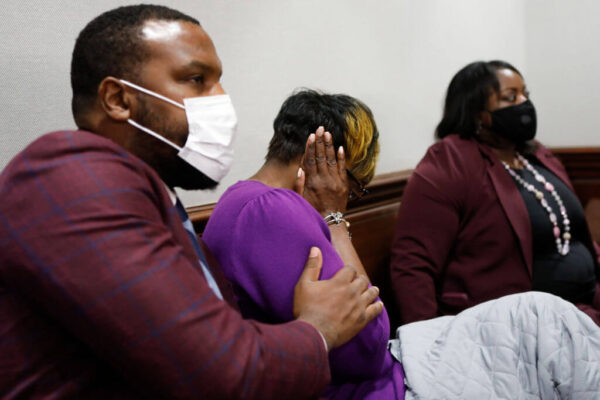The United States Justice Department says it has proposed updated rules for its Office for Victims of Crime, which oversees programs and grants aimed at helping violent crime victims, with the goal of increasing victims’ access to compensation.
The federal guidelines overhaul could help address issues with racial disparities and lower the number of subjective denials to compensation that victims may face from state programs, The Associated Press reported.
“This notice is the culmination of two years of listening sessions, literature reviews, data analyses and interviews with service providers, survivors and other stakeholders — all in an effort to ensure equitable and increased access to crime victim compensation,” the Office for Victims of Crime’s director, Kris Rose, said in a statement to Atlanta Black Star.

“We cannot allow costs associated with medical and dental bills, funeral services, relocation expenses and others to be an additional burden for crime survivors to bear – their burden is heavy enough,” Rose said, referring to the proposed changes as a “major milestone” for the office’s efforts to uphold crime victims’ rights, access and equity.
Last year, an investigation by the AP revealed that in 19 of 23 states that provided racial data, Black victims were disproportionately denied compensation, “often for subjective reasons rooted in implicit biases that are felt across the criminal justice system,” according to the AP report.
The news organization found that states including Michigan and Iowa were among those where “behavioral denials” prevented Black applicants from participating in state crime victims’ compensation programs.
In Michigan, claims can be denied for behavioral issues if a person is “criminally responsible” – which includes “breaking into property, firing a weapon first and being injured, or assaulting someone and becoming injured,” Bob Wheaton, a Michigan Department of Health and Human Services spokesperson, told the Lansing Journal.
For Iowa, Black applicants “accounted for 31.5 percent of those behavioral denials while making up 17 percent of all denials,” reported The Gazette, based on the AP’s investigation.
The chances of Black applicants in Indiana, Georgia and South Dakota getting denied were nearly double that of white applicants, the AP found. Thousands of Black families were denied millions of dollars in aid funding between 2018 and 2021, according to the news organization.
In Georgia, the Georgia Crime Victims Compensation Program provides $25,000 per victim per victimization, according to its website.
One of the proposed federal changes includes prohibiting states from denying claims based on criminal history, according to the proposal.
“Certain populations may be more likely to have criminal history due to unjustified disparate treatment in the criminal justice system or due to criminal conduct induced through force, fraud or coercion, such as unlawful acts that traffickers compelled their victims to commit, and this can result in unjustifiably disproportionate denial of claims for those populations,” the proposal says.
The Office for Victims of Crime is also proposing a provision that stops states from “considering a victim’s alleged contributory conduct in determining compensation claims” in most cases.
The family of Tiras Johnson, an unarmed 23-year-old who was fatally shot in Tulsa, Oklahoma, in 2013, says they were denied compensation through their state’s Crime Victims Compensation Act. They were hoping the money would help ease the financial burden of paying for Johnson’s funeral, according to the American Civil Liberties Union.
His mother said they were denied due to implied contributory conduct and that his death appeared to have gang-related ties. The family said Johnson was not a gang member, the organization reported.


